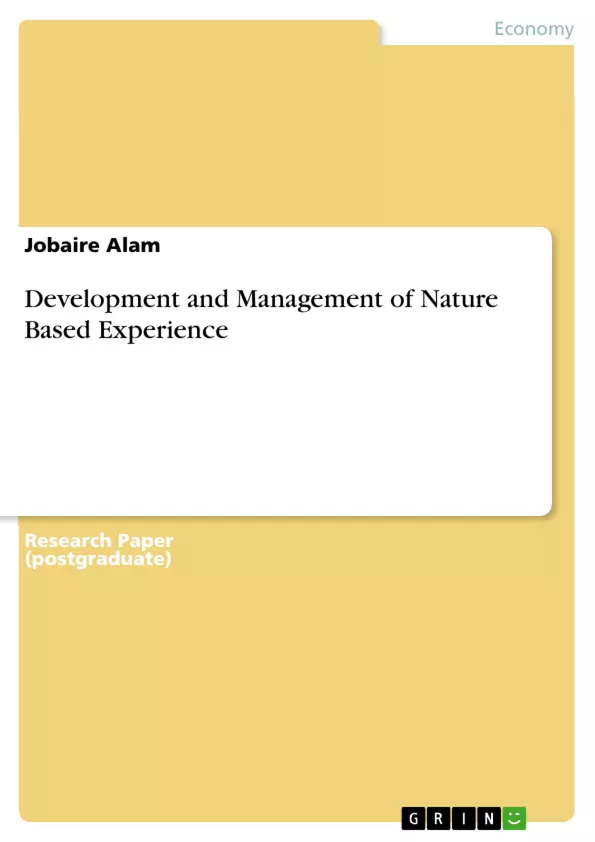The richest countries in the world, industrialized countries and developing countries to sustain its position to become the superpower of tomorrow, are competing each other in order to build unlimited assets. Moreover, all the countries in the world are enjoying the inhuman competition, in accordance with the industrial capitalist class is spreading widely. Implementation of technology is growing very fast at present. Undermine the process; the destruction of the nature of the world has become as fast as that or even faster. Now this matter has become urgent need to take effective action. The process of destruction of the environment may or may not stop; but at least in order to slow the pace of destruction is also possible at this stage. Accountability for the humanity and the like, all of humanity’s collective best efforts of the global eco-economy.
Inhaltsverzeichnis (Table of Contents)
- Milbrath review and reflection
- Social change
- Environmental threats
- Lecture program critique and reflection
- Discussion & Personal opinion
Zielsetzung und Themenschwerpunkte (Objectives and Key Themes)
This term thesis explores the potential of sustainable tourism development in the context of growing environmental concerns and the need for responsible resource management. It analyzes the impact of tourism on both the environment and local communities, highlighting the importance of balancing economic growth with ecological preservation and social equity.
- The environmental impact of tourism and the need for sustainable practices
- The relationship between tourism development, economic growth, and poverty reduction
- The importance of cultural heritage preservation and the role of tourism in its promotion
- The challenges of achieving sustainability in tourism and the need for strategic planning
- The opportunities and risks associated with nature-based tourism
Zusammenfassung der Kapitel (Chapter Summaries)
- Milbrath review and reflection: This section delves into the broader context of environmental challenges and the need for sustainable solutions. It analyzes Milbrath's (1984) work on social change and its relevance to the tourism industry.
- Social change: This section discusses the impact of technological development and environmental change on society, focusing on the need for responsible management to mitigate potential risks. It highlights the importance of social learning and redirecting societal practices for a sustainable future.
- Environmental threats: This section examines the threats posed by greenhouse gas emissions, climate change, and other environmental factors, highlighting the urgency of addressing these issues through responsible tourism practices. It emphasizes the interconnectedness of ecological and human systems and the need for collective action.
- Lecture program critique and reflection: This section analyzes the lecture program's perspective on sustainability, exploring the challenges and opportunities of achieving sustainable tourism development. It emphasizes the need to minimize the negative impacts of tourism on the environment and local communities.
Schlüsselwörter (Keywords)
Sustainable tourism, environmental impact, economic development, poverty reduction, cultural heritage, nature-based tourism, greenhouse gas emissions, climate change, social change, responsible management, strategic planning, global eco-economy.
Frequently Asked Questions
What is the goal of sustainable tourism development?
The goal is to balance economic growth with ecological preservation and social equity, ensuring that tourism does not destroy the natural resources it relies on.
How does tourism impact the environment?
Tourism can lead to greenhouse gas emissions, destruction of habitats, and increased pressure on local ecosystems if not managed responsibly.
What is nature-based tourism?
Nature-based tourism focuses on experiencing natural areas, often promoting conservation and environmental awareness among travelers.
What are the challenges of achieving sustainability in tourism?
Challenges include the inhuman competition in industrial capitalism, the fast pace of technological change, and the difficulty of implementing collective global actions.
Can tourism help in poverty reduction?
Yes, when developed strategically, tourism can provide jobs and economic opportunities for local communities, contributing to poverty alleviation.
- Citar trabajo
- Jobaire Alam (Autor), 2015, Development and Management of Nature Based Experience, Múnich, GRIN Verlag, https://www.grin.com/document/414267



